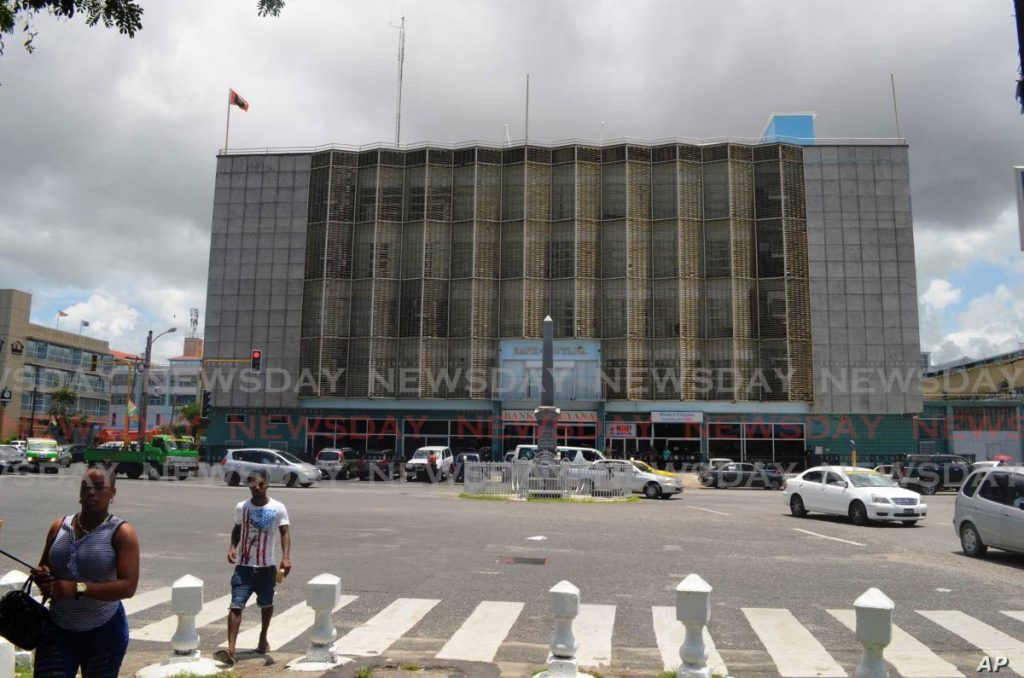2 taxi drivers’ lessons on growth

kmmpub@gmail.com
“Eh boss, look ah big thief man overtaking us,” was, it seems, our driver Waja’s traditional welcome as we set off last week on the two-lane road from Guyana’s Cheddi Jagan airport. Similar sentiments, if less literal, were expressed by our driver Mukesh as we drove in from Piarco airport in TT.
Piecing together these two monologues, enthusiastically delivered to captive audiences, is as revelatory as any conversation on the future of both countries, as we enter a new decade.
If this country is the ghost of Christmas future, then Guyana is the ghost of Christmas present.
In more ways than one, being in Guyana felt like turning back the clock to the early seventies, when TT still had hope that we might use our coming wealth to create a new paradise.
Guyana still has that grip on hope, if one becoming weaker with each new revelation and power grab by the political classes. Waja seemed to know every detail of what was perceived as the government’s “sell-out” and the tax arrangements of the oil companies. At a Guyanese wedding reception, rumours abounded of other weddings – those of government officials paid for by oil company consultants.
Guyana’s hope may derive from vast wealth on the horizon, while ours may seem faded and tattered in comparison, but TT has learned a thing or two over the last 50 years – even if most of that is what not to do. A decorative barrel at a Georgetown rooftop bar advertised a “first oil” party. To his Guyanese counterpart, the Trini Mukesh might say it is all right to “take ah rum” and celebrate – but he has seen a country lose billions as it partied away.
Flying in a single-prop plane over the vast canopies of unending forest, it was easy to see how anyone could lose perspective and become fatalistic in our humid, hot, seemingly still and unchanging tropical climes. How can really make any difference at all? Surely we should accept our fates?
Yet there remains on both sides of the (dark, if not black) “wataa” between our two countries a sense of resilience. To both Waja and Mukesh, each pothole was a friend. They may not have been able to fix the roads, but they damn well knew where each one was and had the instinct to swerve around them. There was little but determination in men boarding the rows of mini-buses being filled with provisions and food to last months spent prospecting for gold in the interior.
When the plane finally dipped and the forest cover broke to the thunderous falls jutting out seemingly out of nowhere it was a shock to the system. But their grandeur was always there.
We don’t have to accept our tropical fatalism (and faith in oil and gas, granted by the gods of geography and multinationals, is fatalism nevertheless). We can overcome the combination of insecurity and defensive arrogance that has prevented people in both our countries from believing in our ability to grow; demanding accountability from our leaders, and opening up to lessons from the outside world.
The long pervasive myths of the arrogant Trinidadian and the grasping Guyanese are being consigned to the past. The only reason why in Georgetown it should require a vast bureaucracy and an hour to be served a simple pepperpot is that there are few examples of how to do better. And it is possible. In TT our doubles vendors have become models of efficiency.
In the same vein, the respect that each Guyanese still has for the great jungles of the interior and the indigenous communities within are things that in TT we are only beginning to realise are crucial to our attempts to diversify. We can learn from each other; and learn from the dozens of other countries that have made the journey to sustainable growth.
Waja, when he wasn’t so distracted by “da woman wit a big bamsee” in the road, or Mukesh, when he wasn’t warning us about how “Guyanese women real sweet, but real dangerous,” could doubtless solve both our societies’ problems over a few “12 and coconuts.”
Development is often an ugly and messy road. The pictures of rural poverty and urban wealth are always beautiful – what lies in between is mostly not. But it reflects an earnest desire for something more. Once our countries regain the confidence extracted by colonialism, and look outward for growth in earnest, we can to create a paradise that is a worthy tribute to the natural beauty around us.
Kiran Mathur Mohammed is a social entrepreneur, economist and businessman. He is a former banker, and a graduate of the University of Edinburgh


Comments
"2 taxi drivers’ lessons on growth"